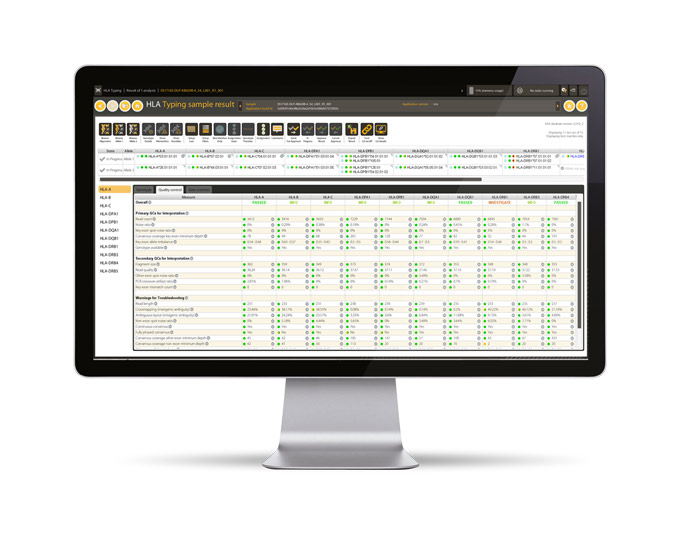Omixon is a global molecular diagnostics company, headquartered in Budapest, Hungary, with US offices in Cambridge, MA that commercializes disruptive technologies for clinical and research laboratories. Omixon’s flagship product, Holotype HLA, an NGS-based HLA genotyping product that delivers the most accurate high-resolution HLA genotyping available, and is used in more than 50+ hospitals worldwide. Omixon’s research software, HLA Explore analyzes data from any sequencing technology and determines HLA genotypes from Whole Exome/Genome Sequencing experiments. Omixon maintains an active grant-funded research program with a product pipeline focused on pre- and post-transplantation, and HLA genotyping applications beyond transplantation.
Products
Omixon focuses on disrupting established molecular diagnostic markets with exciting new products and approaches to business.

Holotype HLA™
HLA Assay and Software by NGS
Holotype HLA is an HLA typing Assay, for histocompatibility laboratories that leverages the power of Next Generation Sequencing (NGS), for use on Illumina® instruments. It is combined with HLA Twin for automated analysis at ultra-high resolution with almost zero ambiguity.

Monotype HLA™
Single-locus HLA Assay and Software
Monotype HLA is an HLA typing Assay for single-locus HLA typing by Next Generation Sequencing for use on Illumina instruments that can be seamlessly integrated with the Holotype HLA workflow or run independently depending on volume.

Monotype ABO™
ABO Typing by NGS
Monotype ABO is a long-range amplification kit covering Exons 2-7 of the ABO gene, and the resulting libraries can be sequenced on Illumina instruments with 2*150bp paired-end reads. The software to analyze the ABO gene is Omixon's HLA Twin, that uses a modified version of the Consensus Genotyping algorithm.

HLA Explore™
HLA Genotyping Software by NGS for genetics/genomics researchers
It is flexible and customizable to handle all sequencing data types from short read technologies such as Illumina and Ion Torrent, as well as newer long-read technologies from Pacific Biosciences and Oxford Nanopore.



